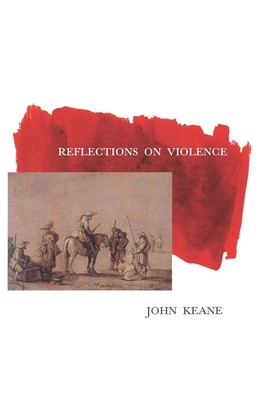
- We will send in 10–14 business days.
- Author: John Keane
- Publisher: Verso
- ISBN-10: 1859841155
- ISBN-13: 9781859841150
- Format: 13.6 x 21.6 x 1.6 cm, softcover
- Language: English
- SAVE -10% with code: EXTRA
Reviews
Description
Genocidal wars, concentration camps, firebombed cities, spreading plagues of private blood-letting: the twentieth century has seen more than its fair share of violence, planned and unplanned, with prospects of still more to come. And yet, argues John Keane, among the paradoxes of this long century of violence is the paucity of imaginative reflection on the conceptual meaning, cause and effects, and ethical-political implications of violence itself.
Comparable to Hannah Arendt's classic On Violence, Keane's book challenges this indifference. It throws fresh light on the notion that we are drifting towards a "new middle ages" marked by uncivil wars sanctioned by decentralized powers--warlords, gangsters, sects--which the modern state was supposed to eliminate. John Keane shows how the term "violence" is riddled with ambiguities, and he confronts the argument, stretching back from St Augustine to Freud, that violence is rooted in "human nature." Rejecting simple-minded pacifism, he goes on to formulate a theory of "uncivil society" and to examine the practical possibilities for greater civility. Above all, he insists that political philosophy and democratic politics must urgently address the issue of violence, not only because of the terrible crimes committed during the century now drawing to a close, but also because we are witnessing the significant growth of a new "politics of civility" aimed at publicizing and reducing a range of specific forms of violence, from rape and child abuse to ethnic conflict and uncivil war.EXTRA 10 % discount with code: EXTRA
The promotion ends in 20d.00:16:01
The discount code is valid when purchasing from 10 €. Discounts do not stack.
- Author: John Keane
- Publisher: Verso
- ISBN-10: 1859841155
- ISBN-13: 9781859841150
- Format: 13.6 x 21.6 x 1.6 cm, softcover
- Language: English English
Genocidal wars, concentration camps, firebombed cities, spreading plagues of private blood-letting: the twentieth century has seen more than its fair share of violence, planned and unplanned, with prospects of still more to come. And yet, argues John Keane, among the paradoxes of this long century of violence is the paucity of imaginative reflection on the conceptual meaning, cause and effects, and ethical-political implications of violence itself.
Comparable to Hannah Arendt's classic On Violence, Keane's book challenges this indifference. It throws fresh light on the notion that we are drifting towards a "new middle ages" marked by uncivil wars sanctioned by decentralized powers--warlords, gangsters, sects--which the modern state was supposed to eliminate. John Keane shows how the term "violence" is riddled with ambiguities, and he confronts the argument, stretching back from St Augustine to Freud, that violence is rooted in "human nature." Rejecting simple-minded pacifism, he goes on to formulate a theory of "uncivil society" and to examine the practical possibilities for greater civility. Above all, he insists that political philosophy and democratic politics must urgently address the issue of violence, not only because of the terrible crimes committed during the century now drawing to a close, but also because we are witnessing the significant growth of a new "politics of civility" aimed at publicizing and reducing a range of specific forms of violence, from rape and child abuse to ethnic conflict and uncivil war.

Reviews